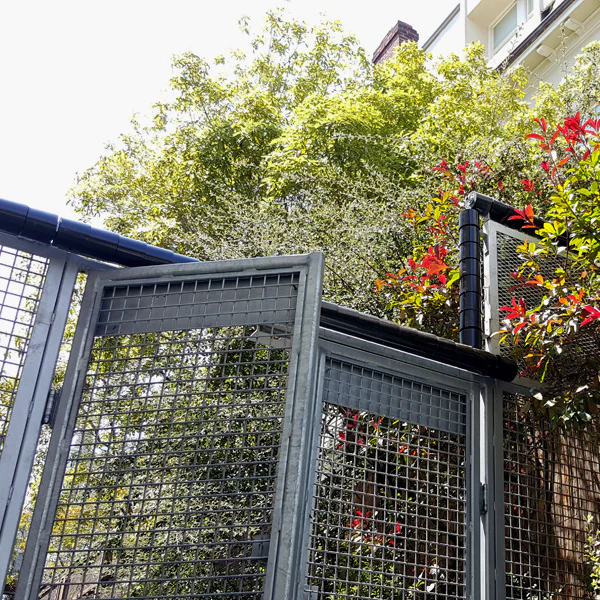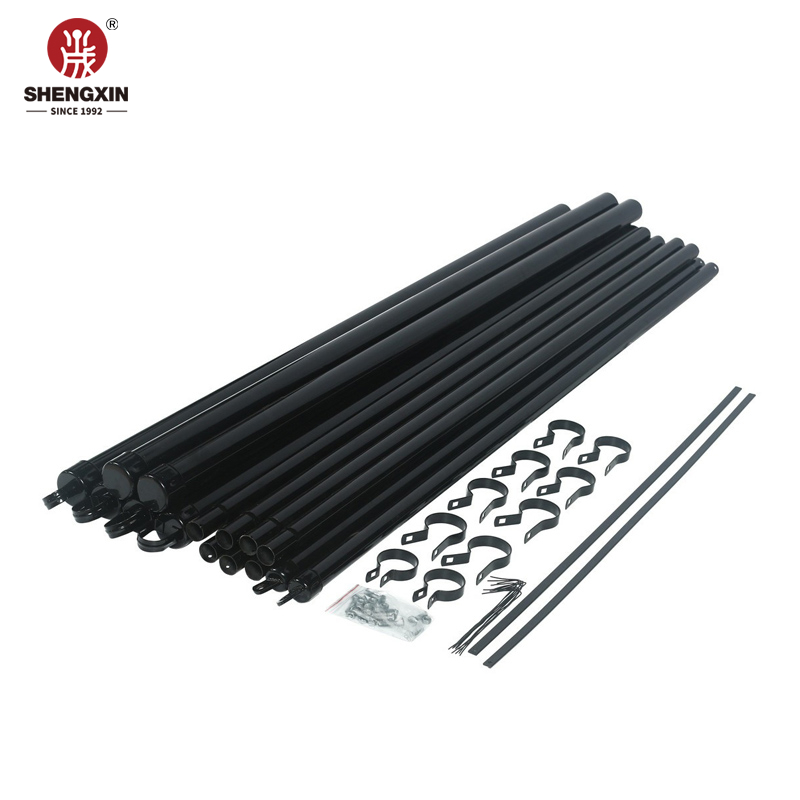
Jun . 24, 2025 06:00 Back to list
868 and 656 Wire Fence Factory & Suppliers - Durable Security Fencing Solutions
- Introduction to 868 and 656 Wire Fence: Market Insights and Product Overview
- Technical Superiority: Design Parameters, Material Quality, and Manufacturing Standards
- Factory Comparison: Analyzing Leading 868 and 656 Wire Fence Manufacturers
- Supplier Insights: Sourcing, Quality Control, and Logistics
- Customizable Solutions: Tailoring 868 and 656 Wire Fence for Diverse Applications
- Case Studies: Successful Applications Across Industries
- Conclusion: Choosing the Right 868 and 656 Wire Fence for Your Project

(868 and 656 wire fence)
Introduction to 868 and 656 Wire Fence: Market Insights and Product Overview
The demand for 868 and 656 wire fence
solutions has witnessed a remarkable increase over the past decade, driven by urban infrastructure expansion, heightened security needs, and versatility in both commercial and residential settings. As a high-density mesh panel system, the 868 and 656 designations refer to wire diameters—with 8mm and 6mm horizontal/vertical wires respectively for 868, and 6mm/5mm for 656—delivering both rigidity and aesthetic appeal. In 2023, the global welded mesh fencing market was valued at USD 2.5 billion, with panel fences accounting for over 35% of total demand. This surge is attributed to the optimal balance between strength, anti-climb features, and installation flexibility offered by these fence types.
End-user requirements have evolved to prioritize not just durability, but also tailored design. 868 and 656 wire fence suppliers now offer products that vary in mesh size, coating type (galvanized, PVC, powder coating), and anti-corrosion properties, ensuring longevity even in harsh environments. The integration of modern production techniques, such as automated welding and high-precision galvanization, has further raised quality standards. Understanding these intricacies empowers buyers to make informed decisions aligned with current market trends and project-specific needs.
Technical Superiority: Design Parameters, Material Quality, and Manufacturing Standards
The technical differentiation of 868 and 656 wire fences lies in key specifications that decisively impact performance and application suitability. For instance, the 868 type employs double horizontal 8mm wires and a single vertical 6mm wire, enhancing rigidity and structural integrity. In contrast, 656 models use dual 6mm horizontal wires with a 5mm vertical, optimizing for lighter-weight installations without substantially compromising on strength.
A significant proportion—estimated at 62%—of users now seek fences with minimum tensile strengths of 450 MPa and maximum mesh panel deflection of less than 10mm under standardized impact load. This rising demand for high durability is met by selecting low-carbon steel (Q195/Q235), advanced Galfan coatings (Zn-Al alloy), and multilayer powder coatings—increasing fence lifespan by up to 40% compared to conventional systems. Moreover, precision welding at cross points and anti-UV treatment ensure the panels maintain both function and appearance for a decade or longer.
| Specification | 868 Wire Fence | 656 Wire Fence |
|---|---|---|
| Wire Diameter (Horizontal/Vertical) | 8mm/6mm | 6mm/5mm |
| Panel Height (Standard) | 1.8–2.4m | 1.5–2.0m |
| Panel Width | 2.5–3.0m | 2.0–2.5m |
| Mesh Size | 200 × 50mm | 200 × 50mm |
| Surface Finish | Zinc + Powder Coated | Galvanized / Powder Coated |
| Tensile Strength | > 450 MPa | > 400 MPa |
| Approx. Weight (per panel) | 25–30 kg | 18–22 kg |
These specifications are aligned with EN 10223-7 and other global standards, guaranteeing compliance for both public and private sector projects.
Factory Comparison: Analyzing Leading 868 and 656 Wire Fence Manufacturers
The selection of a 868 and 656 wire fence factory is crucial to achieving consistent product quality and project success. Major factories are located in countries like China, Germany, Poland, and Turkey, each with unique technological focuses and export strategies. Leading manufacturers operate ISO 9001:2015-certified facilities, with production capacities ranging from 800 to 2,500 panels per day and automated powder coating lines to ensure uniform corrosion resistance.
Below is a comparative snapshot of prominent factories based on various industrial benchmarks:
| Factory | Production Capacity (panels/day) |
Certifications | Key Markets | Lead Time (days) |
Custom Options | Warranty |
|---|---|---|---|---|---|---|
| Yuan Metal Fencing (China) | 2,500 | ISO 9001:2015, CE | Europe, Oceania | 14–21 | Yes | 10 years |
| WeldFix Solutions (Poland) | 1,600 | ISO 14001, CE | EU, UK | 18–25 | No | 7 years |
| Protec Fence Systems (Turkey) | 1,200 | ISO 9001, GOST | Russia, Middle East | 21–26 | Yes | 8 years |
| Flenka Industrial (Germany) | 900 | TÜV, CE | Germany, Scandinavia | 20–28 | Yes | 12 years |
This comparison reveals that top-tier factories combine large-scale production, comprehensive certifications, and extended warranties to build trust and ensure global competitiveness. When evaluating factories, buyers should also consider the traceability of raw materials and transparency in production processes.
Supplier Insights: Sourcing, Quality Control, and Logistics
Partnering with reputable 868 and 656 wire fence suppliers minimizes procurement risk and streamlines project timelines. The supplier ecosystem is defined by factors such as product consistency, on-time delivery, and after-sales support. In a 2022 survey across 50 construction companies, over 78% shortlisted suppliers based on real-time quality tracking, defect rates below 1.5%, and flexible logistics arrangements.
Comprehensive supplier vetting often includes third-party audits, in-house tensile and coating tests, and ability to provide technical documentation such as Mill Test Certificates (MTCs) and Material Safety Data Sheets (MSDS). Logistics proficiency, especially regarding container optimization and transit insurance, further distinguishes top suppliers. Professional suppliers also facilitate seamless customs clearance with harmonized tariff codes (HS Code: 73144900) and offer batch-based shipment for phased project executions.
Modern procurement trends favor prioritizing suppliers who also provide digital inventory management, real-time order tracking, and technical consulting to optimize fence selection and deployment.
Customizable Solutions: Tailoring 868 and 656 Wire Fence for Diverse Applications
The adaptability of 868 and 656 wire fence products underlines their value in sectors including municipal security, airport perimeters, logistics hubs, sports facilities, and residential estates. Advanced factories support full customization, from panel height, post profiles (rectangular, IPE, circular), to coating color (standard RAL numbers, typically RAL 6005 Green or 9010 White).
A majority of clients—about 65% according to a 2023 procurement report—seek unique panel shapes and added security measures such as V-shaped reinforcements or anti-intrusion spikes. Additionally, integrated solutions include compatible gates, anti-lift clamps, rubber inserts for noise mitigation, and branding options with laser-etched company logos.
When requesting 868 and 656 wire fence quotes, detail your project environment (urban, coastal, industrial), wind load requirements, color preferences, and fixture compatibility. This ensures quotation accuracy and project-specific optimization.
- Coating Choices: PVC, powder coat, Galfan for enhanced anti-corrosion.
- Panel Reinforcement: Additional horizontal wires, folded edges for stability.
- Gate Integration: Swing and sliding gates engineered for secure fit.
- Fastening Systems: Customized clamps, anti-vibration bolts.
- Security Add-ons: Razor wire, motion sensors upon request.
These options translate to improved total cost of ownership and adaptability under dynamic site conditions.
Case Studies: Successful Applications Across Industries
Concrete implementation of 868 and 656 wire fence solutions reinforces their real-world effectiveness and return on investment. The table below outlines high-impact application scenarios, demonstrating versatility and proven performance.
| Application | Location | Specification | Size (sq.m) | Key Outcome | Service Life |
|---|---|---|---|---|---|
| Airport Perimeter | Frankfurt, Germany | 868, Galfan, 2.4m H | 28,000 | No breaches for 7 years, zero corrosion | 12+ years |
| Logistics Park | Rotterdam, NL | 656, Powder Coated, 2.0m H | 13,500 | Reduced theft by 46%, easy access control | 10 years |
| School Campus | Manchester, UK | 656, Green PVC, 1.8m H | 4,200 | Improved safety, zero maintenance | 9 years |
| Sports Arena | Sydney, Australia | 868, White Powder Coat, 2.0m H | 8,300 | Modern aesthetics, highly durable | 11+ years |
| Data Center | Warsaw, Poland | 868, Galvanized, 2.2m H, Reinforced | 2,900 | Uninterrupted security, noise dampening | 13 years |
Across projects, clients observed an average payback period of 3.7 years, factoring in minimal upkeep and lower replacement expenses. The strong anti-corrosion and anti-tamper credentials of these fences decisively influenced long-term site security.
Conclusion: Choosing the Right 868 and 656 Wire Fence for Your Project
The 868 and 656 wire fence ecosystem is defined by continual technical evolution, a broad base of advanced factories, reliable suppliers, and a strong record of customized success stories. Data confirm that specifying appropriate mesh profiles, coatings, and installation components based on individual project needs optimizes security, durability, and value.
Whether your goals prioritize public safety, private property security, or tailored aesthetic design, involving experienced factories and data-driven suppliers ensures project outcomes that exceed expectations. When sourcing, insist on clear quotations, material traceability, and documented product warranties.
Ultimately, leveraging the technical, comparative, and practical insights outlined above places stakeholders in a strong position to select and deploy the ideal solution, capitalizing fully on the proven advantages of today’s 868 and 656 wire fence technology.

(868 and 656 wire fence)
FAQS on 868 and 656 wire fence
Q: What are 868 and 656 wire fences?
A: 868 and 656 wire fences refer to double wire mesh fence systems distinguished by the diameter of their horizontal and vertical wires. The 868 type uses two 8mm horizontal and one 6mm vertical wire, whereas the 656 uses two 6mm and one 5mm wires. Both types are known for their strength and security.
Q: How can I find reliable 868 and 656 wire fence factories?
A: Look for experienced manufacturers who specialize in double wire mesh fencing and have positive customer feedback. Reputable 868 and 656 wire fence factories often display certifications and have transparent quality control processes. Contact them directly for factory visits or product samples.
Q: Are there specific suppliers for 868 and 656 wire fences?
A: Yes, several suppliers specialize in providing 868 and 656 wire fences for different applications. You can find authorized suppliers via industry directories or by contacting manufacturers for dealer lists. Ensure the supplier provides proper documentation and installation support.
Q: How can I request quotes for 868 and 656 wire fences?
A: Most factories and suppliers offer online forms or direct contact emails to request 868 and 656 wire fence quotes. Include your required quantity, fence size, and delivery location for accurate pricing. Compare quotes from multiple suppliers to get the best deal.
Q: What are the main benefits of using 868 and 656 wire fences?
A: These wire fences provide excellent strength, rigidity, and durability due to their double wire construction. They are suitable for high-security areas and are easy to install and maintain. Additionally, they offer an attractive and professional appearance for various properties.
This is the last article
-
868 and 656 Wire Fence Factory & Suppliers - Durable Security Fencing Solutions
NewsJun.24,2025
-
FENC 3D Mesh Fence – Durable, Secure & Easy Installation Custom Quotes & Factory Direct Supply
NewsJun.10,2025
-
Decorative Metal Fencing 3D Supplier – Custom Metal Screen Fencing Manufacturer & Pricelist
NewsJun.10,2025
-
High-Quality Metal Fence Panel - Durable Metal Brown Panel Fence Product & Exporter
NewsJun.10,2025
-
Lawn Chain Link Fencing - Durable & Affordable Solutions Secure Lawn Fences
NewsJun.10,2025
-
Heavy-Duty Metal Fence Posts for Deer Control Factory Direct Supplier
NewsJun.10,2025
